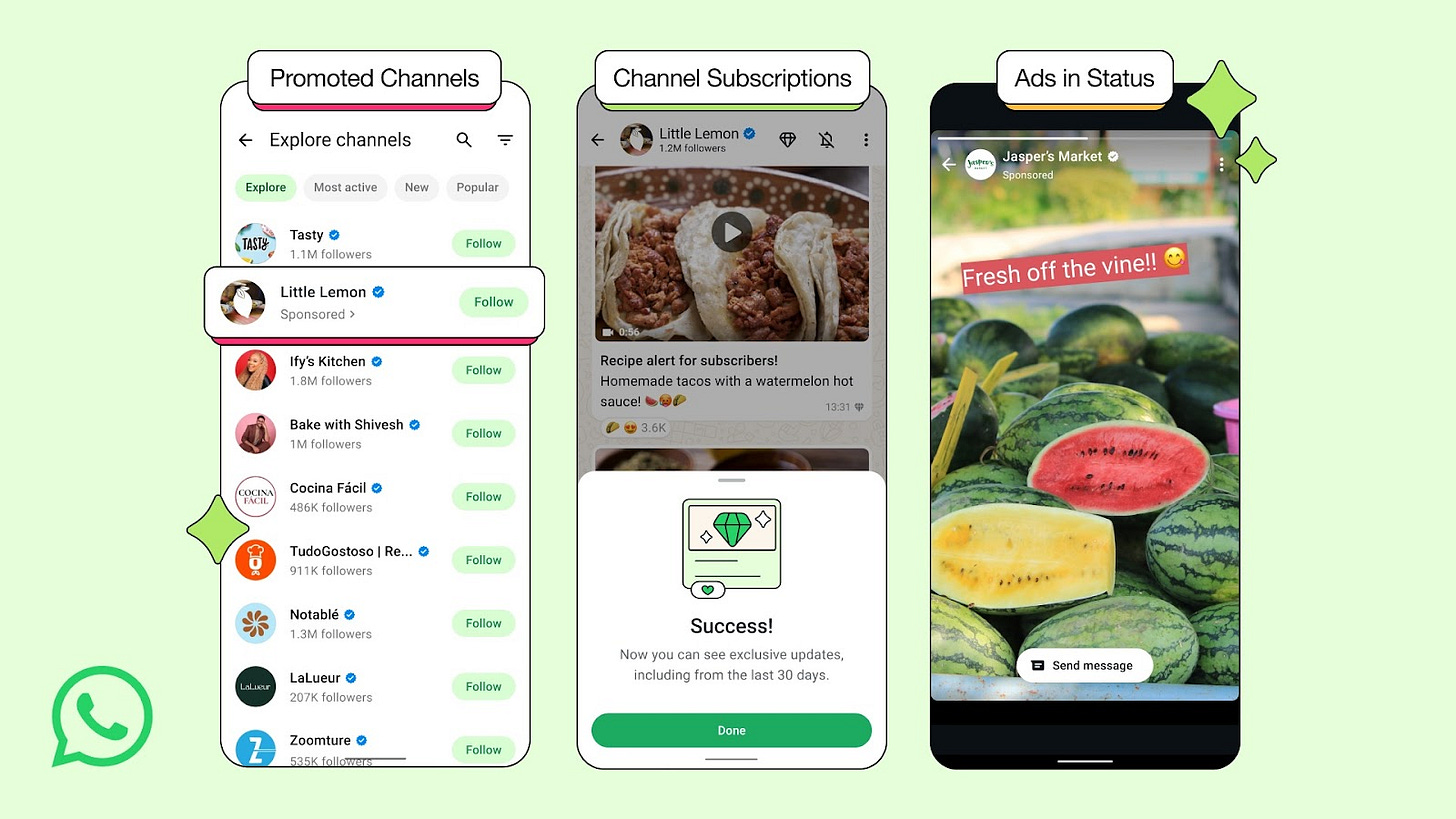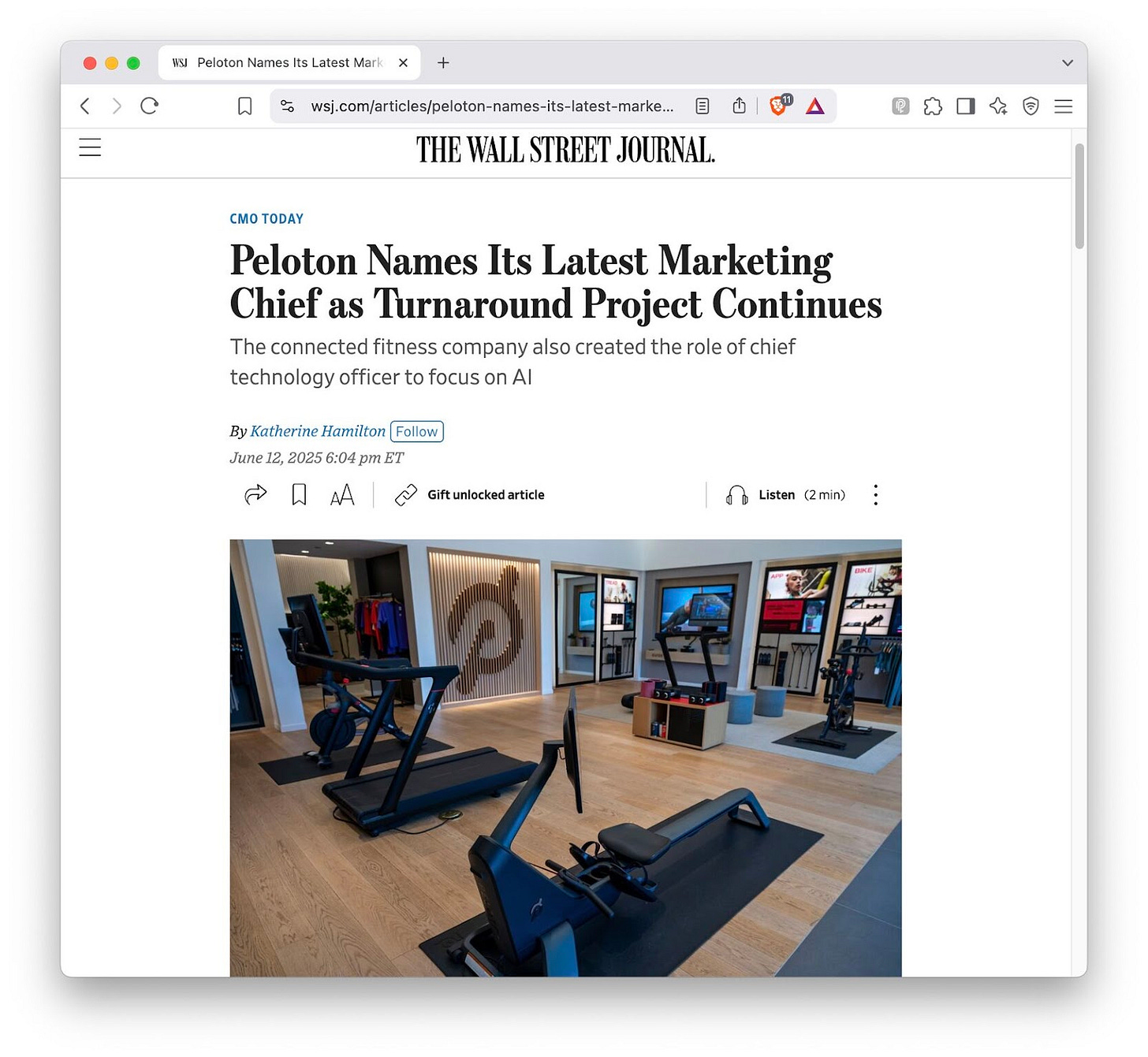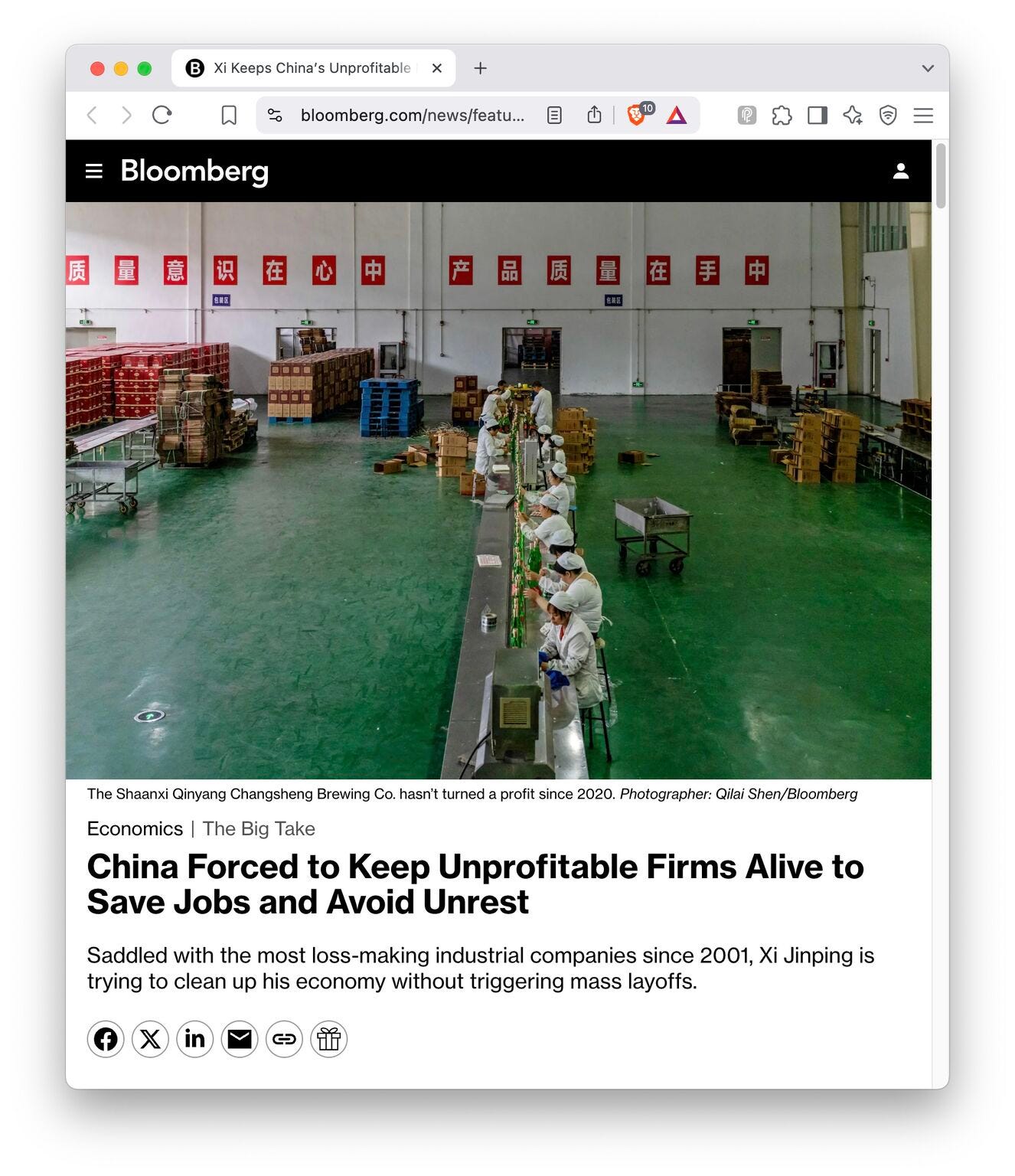(#131) 💬Ads are coming to WhatsApp; META vs. Microsoft
Money can’t buy a company culture
Dear #onStrategy reader,
Here is what you’ll find in this edition:
My annual presentation (download it below)
Ads are coming to WhatsApp
Money can’t buy a company culture
Problems in paradise: META & Microsoft
…and more 👇
Onto the update:
My annual presentation is ready to be shared
Some insights after sharing my annual presentation with some Board advisors / C Level executives👇
In most companies, the problem isn’t the strategy, it’s Steve. Or Ana. Or that one guy in operations who’s the only person who knows how the ERP system works, except he doesn’t like people asking questions. What used to be annoying is now existential. Because in the era of AI (what I call in my presentation "The compressed decade") velocity is strategy. The companies that win aren’t the ones with the best whiteboard sessions, but the ones that can ship, test, and iterate ten times before others even get to version 1.0. And if you can’t move fast because someone in procurement is hoarding Excel macros like it’s 2004, well, good luck pivoting.
Of course, AI doesn’t fix the bottlenecks, but it exposes them ruthlessly. It doesn’t care about seniority or who built what ten years ago. It just needs access and permission. And if your whole business unit moves at the speed of its slowest person, then GenAI turns that from a minor HR issue into a structural threat.
So the solution isn’t more dashboards or another strategy off-site. It’s simple: find the bottlenecks, fix them, or replace them. Because the companies that figure this out get to compress time. The ones that don’t? They get compressed.
Download it here.
Ads are coming to WhatsApp
1/ Meta’s latest move to monetize WhatsApp (ie. the once-pristine, “no ads, no games, no gimmicks” messaging app) now involves adding promoted channels, subscription models, and yes, ads… but only in the “Updates” tab, they promise. So not in your chats, just adjacent to your chats, like a little monetization vestibule. It’s kind of like selling billboard space in the church parking lot while swearing the altar is sacred. Of course, you’re not forced to see them, unless you click, or you’re curious, or you breathe. And of course, Meta won’t sell your data, not because of ethics but because it’s too valuable to share. Why sell your gold mine when you can dig it yourself?
But the real signal here it’s about the slow, creeping data linkage. WhatsApp is now nudging users to add email addresses, claiming it’s “for security,” which is adorable. Maybe it is, and maybe your email just happens to unlock a little cross-platform ad targeting magic. After all, Meta can’t read your encrypted messages, but it can still triangulate your identity from your phone number, IP address, language settings, ad interactions, and now your email. So welcome to the latest episode of “How to Monetize Privacy While Pretending You’re Not.” The app is still free, though, so in true Meta fashion, your attention is the product, but this time, neatly organized into the “Updates” tab like a well-labeled data set. LINK
Money can’t buy a company culture
Meta’s latest recruitment strategy is basically “what if we took the vibes of a hostile takeover, mixed them with the desperation of a washed-up prom king, and sprinkled in $100 million offer letters?” In case you missed it: Meta reportedly tried to poach OpenAI engineers with signing bonuses of up to $100 million (per person!). And not just a few engineers. Sam Altman says it was an all-out cash cannon barrage. Which, frankly, is on brand for a company whose innovation pipeline lately reads like a remix of features from more popular apps, now in pastel blue.
It seems that nobody at OpenAI took the bait. Meta offered people the kind of money that makes VCs blush, and still couldn’t convince top AI researchers to jump ship. Because apparently, “do you want to sit next to Zuck while trying to build AGI on a team run by a guy from Scale AI?” is not the compelling pitch they thought it was. Turns out you can’t buy mission-driven culture with a stock grant. And for a company once valued for building social networks, Meta’s real problem now is that it can’t even build a network of believers in-house. Maybe they should try friending some on Facebook. Oh wait. LINK
Problems in paradise: META & Microsoft
It turns out that if you give someone $13 billion, let them build world-changing technology in your cloud, sell it through your platform, and make your brand synonymous with The Future, they might one day decide they don’t need you as much anymore. That’s Microsoft’s current situation with OpenAI, the startup it turbocharged into an AI juggernaut and which now seems to be realizing, “Wait, maybe we are the main character”. The relationship, once a beautiful case of Big Tech funding science fiction into reality, has turned into a custody battle over compute, model access, and whether Sam Altman is allowed to see other clouds. OpenAI wants to become a public-benefit corporation and maybe go public, but Microsoft owns a golden veto key and doesn’t feel particularly philanthropic right now. The AI alliance is less “Power Couple” and more “We’re staying together for the kids (of GPT-5).”
And like any messy breakup, it comes down to who gets what when the world’s first trillion-dollar AI model goes to college. Microsoft is willing to give up some equity in exchange for “perpetual access” to OpenAI models post-2030, which has the translation for “you can take the money, just leave the brain.” OpenAI wants to spread its tech across other clouds and break free of Microsoft’s embrace, which, from a strategic standpoint, makes sense. Why have just one sugar parent when you can have three? But Microsoft knows the game: it funded the infrastructure, holds the distribution channels, and has been quietly building its own in-house alternatives just in case Sam Altman goes rogue. In the end, it’s less about AGI or governance and more about who gets to write the invoice when the singularity arrives. LINK
🚙🚗 on EVs
It’s not just that China leads the world in EV sales, it’s that China made the world care about EVs in the first place. Sure, Tesla built a cool car. But China built the ecosystem, the infrastructure, the sub-$10K EV market, the subsidies, the policy muscle, and yes, the geopolitical patience to let Tesla walk in, teach everyone how to do it, and then slowly start beating it at its own game. You can almost hear Beijing saying, “Thank you for the playbook, Mr. Musk, we’ll take it from here.” And they are. BYD, Geely, and Wuling (Wuling? really?) now dominate the volume race, not just in China but globally. Tesla is still the poster child of premium electric mobility, but the quiet truth is that China no longer needs it.
It’s tempting to see Tesla’s Model Y and Model 3 topping global charts and assume everything is fine. But market share doesn’t tell you much when the underlying dynamics scream “knowledge transfer complete.” This was never about Elon vs. Chinese automakers. It was about time. And time is up. China’s EV strategy was never just about climate or innovation, it was about industrial power, soft control, and using consumer capitalism as a Trojan horse. Now they’re exporting cars, batteries, charging stations, and soon, maybe even regulation. You can argue Tesla’s lead was self-inflicted; after all, the company opened its own Shanghai Gigafactory and, by design, let China peer directly into its tech, its processes and its supply chain.
So yes, Tesla made EVs cool. China made them inevitable. And somewhere in a government back office in Shenzhen, there’s a chalkboard with “Tesla” on top and “absorbed” written underneath. The real race now isn’t between carmakers, it’s between political systems and economic ideologies using cars as their avatar. LINK
Peleton is dead…and they know it
Peloton’s marketing chief is once again a new person, which is a little like changing the captain on the Titanic after it’s already hit the iceberg but before it officially sinks. Megan Imbres, previously of Apple’s services marketing team and the famously short-lived Quibi, now takes the wheel of a brand that has already exhausted its pandemic halo, downsized its marketing budget by nearly 50%, and is somehow still in a turnaround. Peloton says it’s trying to acquire users “more cost efficiently,” which is a polite way of saying “we spent like drunken sailors during lockdown and now we’re doing spreadsheets.” Also, the company posted another quarterly loss, though smaller than last year’s, so maybe the Excel therapy is working.
Meanwhile, they promoted a new CTO to lead their AI efforts, because of course they did. In 2025, if your company isn’t using AI to recommend workouts or guilt-trip you into hopping on the bike, are you even trying?
If your AI is brilliant, then it doesn’t need a new marketing officer. And if your marketing officer is brilliant, then maybe you don’t need AI to explain what a stationary bike is. Peloton is now in the uncanny valley of tech strategy, where it’s not clear whether it wants to be a hardware company, a subscription business, a software-as-a-service platform, or just vibes.
What it is, unfortunately, is still not profitable. But hey, at least someone gets a new LinkedIn job title out of it. LINK
China’s dead companies
🇨🇳 China’s latest strategy to keep its economy afloat reads like a page ripped straight from 🇷🇴 Ceaușescu’s communist playbook: prop up unprofitable factories, drown the system in subsidies, and pretend that economic gravity no longer exists. In a moment of pure surrealism, Bloomberg describes how Xi’s government is keeping zombie firms alive, not to innovate or compete, but to prevent social unrest from mass layoffs.
Courts won’t approve bankruptcies because judges are literally held responsible for any protests that follow. So the government subsidizes losses, props up fake profitability with highway toll exemptions and tax gifts, and prays no one notices the rot. But the rest of the world has noticed, cue the anti-dumping tariffs and collapsing foreign trust.
You can prop up a corpse for a photo, but that doesn’t make it alive. And eventually, someone’s going to notice: this is all fake! LINK
PRINCIPLE: Speed up as you age
There’s a myth that life has a natural slope: up in your 20s and 30s, plateau in your 40s, then a slow descent into “maturity,” “comfort,” or worse, “relevance loss.” But what if that’s all backwards?
What if aging were your license to speed up?
You’ve already done the hard part: learning who you are, what you care about and how the world really works. Now is the time to accelerate.
Be the one who learns the new app before your kids. Try the weird new food. Launch the project, speak up in the meeting, say yes to the invitation. Read sci-fi (or George R.R. Martin). Follow a 22-year-old on Instagram who makes you uncomfortable (but also, think). Start the podcast you thought you were “too late” for.
Because here’s the truth: Most people slow down not because they have to, but because they think they’re supposed to.
They confuse “being seasoned” with being stagnant. They swap curiosity for comfort. But comfort is a cage with nice pillows.
The real edge belongs to those who keep moving forward while others park in “nostalgia.”
Speed is a mindset. So is irrelevance.
You don’t lose your edge. You let it rust. Keep it sharp. Speed up. LINK
I just launched my book on strategy:
Through 28 chapters, I covered three parts: (1) Strategy, (2) Innovation & Growth, and (3) Generative AI.
See a full sample - the chapter on Network Effects. - click HERE











